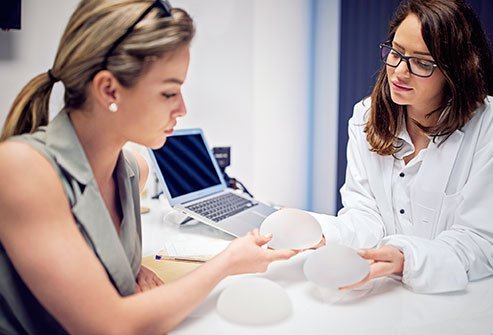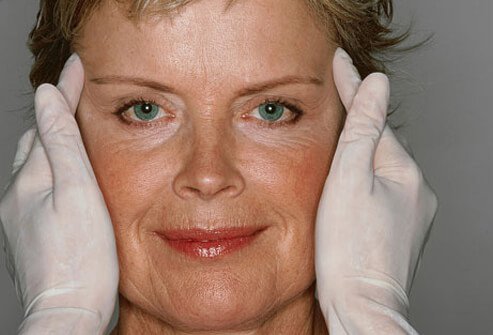
Many women feel more confident and see a self-esteem boost following their breast augmentation; however, they may still need time to adjust to the new changes to their bodies.
In general, most women are satisfied with the results of breast augmentation. Success rates of breast augmentation are quite high (about 98 percent) with the recipients reporting that:
- They feel more confident at work and in social or personal life.
- They have greater sexual satisfaction.
- They get more attention.
- They have higher self-esteem.
- They try more varied types of outfits than before.
Thus, for most women, going for a breast implant was a good decision, and it made them happier and more contented with their bodies than they previously were. Nevertheless, every procedure comes with its distinct limitations and risks.
You may need some time to adjust and accept the change the surgery brought to your body. It may take a while for you to choose the right clothes and accept the implants as a natural part of your body.
For some days or weeks post the surgery, you may experience some numbness, tingling, or prickling sensation over your breasts and nipples. These sensations go away on their own as the nerves heal following the surgery.
What are some reasons to get breast implants?
Breast augmentation or breast implant surgeries are one of the most common plastic surgeries performed worldwide. They may be done for several reasons including restoring the shape of the breasts after breast cancer surgery.
Many women may opt for the surgery because they think their breasts are too small or not developed (macromastia). Some women go for breast implants because their breasts are naturally asymmetric (unequal in size or shape).
Breast implants may be chosen due to changes in the firmness or size of the breasts due to aging or after childbirth.
Do breast implants give permanent results?
Breast implants, although long-lasting, do not give any permanent results. Your breast implants may sag or change in position as you age or gain significant weight. There may be changes in the appearance of your breasts if you lose weight. Thus, you may need corrective surgery to get the desired look of your breasts after the initial surgery.
When properly taken care of, breast implants generally last anywhere between 10 and 20 years. The risk of breast implant rupture increases by one percent each year after the initial surgery.
If you are not satisfied with the look of your breasts after the implants are placed, you may go for another surgery with implants of a bigger or smaller size or a different material or type.
What are the risks of breast implants?
Some of the complications of breast implants include:
- Implant rupture
- Capsular contracture (scar tissue formation around the implant that hardens the breast and distorts its shape)
- Breast pain or discomfort
- Changes in skin sensation over the breast and nipples
- Infection
- Bleeding or hematoma formation
- Implant displacement or sagging
- Implant rippling or wrinkling
- Need for additional views during mammograms
- Anesthesia-related complications
- Breast scarring
- Uneven nipple positions
- Need for a repeat or corrective surgery
- Breast implant-associated lymphoma (a type of cancer of the immune system)

SLIDESHOW
Plastic Surgery: Before and After Photos of Cosmetic Surgeries See Slideshow
What is breast implant–associated lymphoma and what are the symptoms?
Breast implant-associated lymphoma, also called breast implant-associated anaplastic large cell lymphoma (BIA-ALCL), is a rare but serious complication of breast augmentation. It is not a type of breast cancer but a type of non-Hodgkin’s lymphoma (a type of cancer of the immune system). It is generally localized to the scar tissue and fluid around the breast implant but may spread to other parts of the body as well.
BIA-ALCL may present as a lump or mass in the breast and breast pain and swelling after the breasts have healed following the surgery. Early detection helps in successfully treating cancer by removing the implant and some tissue around it. Advanced cases may additionally need chemotherapy and radiation therapy.
Although there is a lack of enough scientific evidence to recognize it as an illness, some people may report a constellation of generalized symptoms called breast implant illness (BII). BII may occur with any type of breast implant and is also called autoimmune/inflammatory syndrome induced by adjuvants.
Symptoms of BII may occur any time after the surgery and may present as:
Latest Women’s Health News
Daily Health News
Trending on MedicineNet
Medically Reviewed on 4/19/2022
References
https://www.plasticsurgery.org/news/blog/will-your-breast-implants-last-a-lifetime
https://www.breastcancer.org/treatment/surgery/breast-reconstruction/types/implant-reconstruction/illness/breast-implant-illness
https://www.fda.gov/medical-devices/breast-implants/questions-and-answers-about-breast-implant-associated-anaplastic-large-cell-lymphoma-bia-alcl
https://www.pennmedicine.org/cancer/about/focus-on-cancer/2019/october/five-myths-about-breast-reconstruction-options-debunked